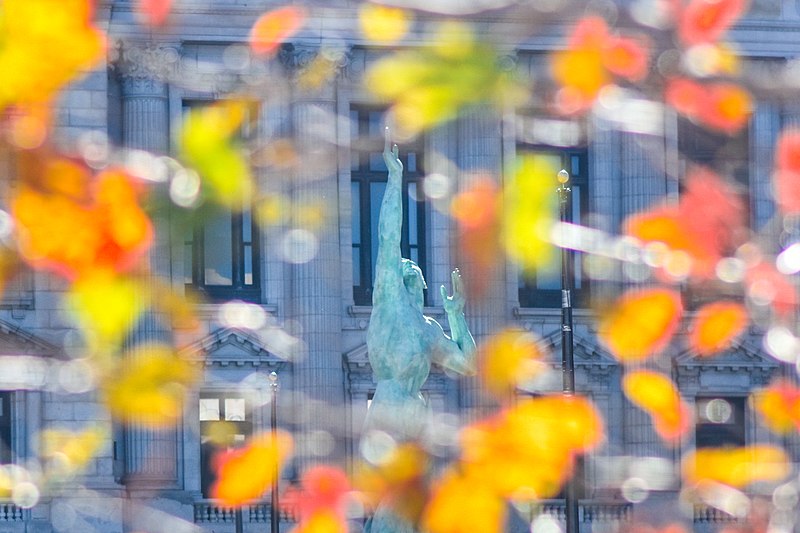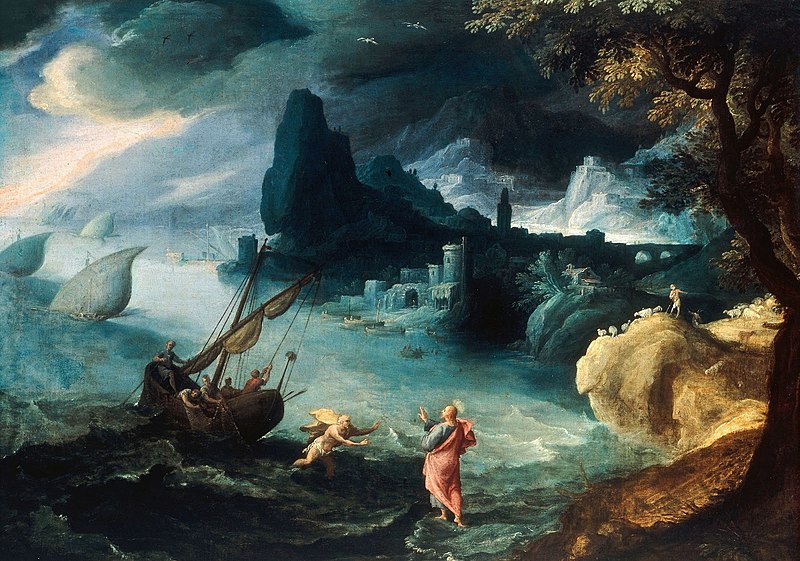
Friday
1 Kings 19:1-8
1Ahab told Jezebel all that Elijah had done, and how he had killed all the prophets [of Baal] with the sword.
The reading as appointed for this Sunday doesn’t include these words. It begins without explanation in verse 4 saying “[Elijah] went a day’s journey into the wilderness, and came and sat down under a solitary broom tree.” There was a time in which the average person in the pew knew the story of Elijah’s dramatic confrontation with the prophets of Baal on Mt. Carmel. They would have known that the northern kingdom of Israel’s king, Ahab, had married a Sidonian Princess, Jezebel, and she had undertaken a project to bring Israel’s ancient faith into the modern world, replacing its god of the exodus and wilderness with Baal, the god of rain – replacing the God of justice and mercy with the god of fertility and prosperity. The average parishioner would have known that a profound religious conflict was underway, that Jezebel was murdering the prophets of the LORD, and that God had declared through Elijah that if Israel wanted to worship the god who gives rain, God would show them who truly ruled and announced there would be no rain except at God’s word.
When the burden of the drought became unbearable, with the king plundering the resources of the countryside for his own table and horses, Elijah summoned the people and proposed a showdown with the prophets of Baal. Each would lay out a sacrifice but neither would bring fire. Each would pray for their god to send down fire from heaven. The prophets of Baal did their ecstatic prayers all day as Elijah stood by taunting them to shout louder suggesting Baal “is meditating, or he has wandered away, or he is on a journey, or perhaps he is asleep and must be awakened.” Then, to demonstrate the truth of the LORD, Elijah drowns his altar with water before offering his prayer. Fire promptly descends and consumes everything: offering, altar and the surrounding ditch of water.
An uprising occurs where Elijah orders the murder of the pagan prophets. The queen, however, is enraged and unconverted. She solemnly vows to kill Elijah who flees into the wilderness; his triumphant cultural revolution has failed. There, in his exhaustion, fear and despair, he lies down and prays to die.
There was a time everyone hearing our small portion of the reading would have known all this backstory, but no longer. And maybe the language of murderous religious strife is too toxic for our day. But without the backstory, the power and drama of the meal eludes us. Wondrous bread in the wilderness is one thing; bread when all hope is lost is another.
The God who feeds Elijah is the God who again and again delivers when hope is lost. From the very first narrative of Adam and Eve evicted from the Garden, or Cain with the blood of his brother on his hands, God provides a future when the future is lost. A new beginning is given to a world engulfed in violence through Noah. The line of Shem ends with Abraham and a barren wife, yet a child is promised and given. Jacob is sold into slavery, imprisoned by a lie and lost in the dungeons of Egypt, but rises to rule. Israel is in bondage but God opens the Red Sea. In the wilderness without food or water, a rock yields a river and the heavens rain manna. When Jerusalem is destroyed and the people in exile without hope, God announces a new exodus: “make straight in the desert a highway for our God.” It is the central narrative of the scripture.
There is so much more in our little narrative than a wondrous heavenly meal given to an ancient prophet. It is the gift of hope, the promise of a future, a journey worth taking into the presence of God.
We hear this story as people who see the painful wounds of the world and the terrible capacities of the human heart. In every sanctuary is a cross – testimony to the brutal reign of human empire in the nails and pierced side of Jesus. We hear this story in the midst of our personal journeys to fearful places. But the grave is empty. And from the wounded hands of a risen lord we, like Elijah, are fed with bread for the journey.
+ + +
Image: https://commons.wikimedia.org/wiki/File:N.D._de_la_Chapelle_812.jpg By Michel wal [GFDL (http://www.gnu.org/copyleft/fdl.html) or CC BY-SA 3.0 (https://creativecommons.org/licenses/by-sa/3.0)%5D, from Wikimedia Commons





